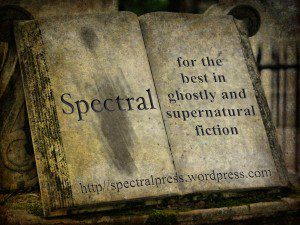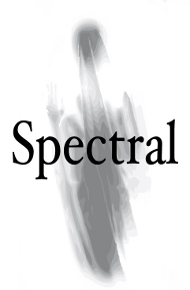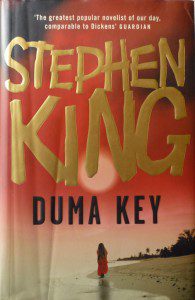 So, just what is this editing lark then? What’s it all about? And do writers really need editors? What, exactly, is the relationship between an author and his/her editor?
So, just what is this editing lark then? What’s it all about? And do writers really need editors? What, exactly, is the relationship between an author and his/her editor?
In this, my first column for This Is Horror of 2012, I will explain what editing involves and why it’s necessary, albeit from the perspective of someone who has had to teach himself the art, mainly by actually getting my hands dirty and editing (along with tips and clues gleaned from conversations and interviews with other editors I’ve come across on my internet travels). If there are any misconceptions in the following, they are mine and mine alone – apologies in advance if there are any.
The writer’s job is to write, to make concrete in words what they see in their minds. Authors will sometimes go through multiple drafts of a work before they’re satisfied with the result, after which they will hand it over to their publisher. But that’s just the beginning of the process from manuscript to printed page – next comes the editing. An editor will check such aspects as spelling, grammar, consistency, whether events referred to throughout the book all match up or that there are no continuity errors, amongst many other things. Editors will also cut out extraneous language, slim down over-descriptive prose or even, as I’ve done once or twice, cut out whole passages or chapters that don’t add anything to the story or interrupt narrative flow. Sometimes, an editor will even suggest that certain parts of the story be changed around just so that all will run along much more smoothly for the reader.
But where is the writer in all this?
At its simplest the author, for all that he or she is the one who has created the work, is far too close to it to see what needs to be done, if anything – and that’s where the eyes of an editor come in most handily. In the case of Spectral (and I assume this also goes for all publishers worth their salt), I work very closely with the author, discussing any changes that may need to be made or talking about suggestions that I might have come up with. Ultimately, it has to be a collaborative effort between the two parties in order for it to work properly. An author will listen to what a good editor has to tell them; conversely a good editor will listen to what the author is saying. Decisions have to be made jointly, which means a certain amount of compromise is necessary sometimes.
 The form the book/story takes has a bearing on how it is edited, over and above the usual mechanics of checking over a script. Short stories, novellas and novels require careful attention to detail and ensuring that all the criteria, mentioned in the paragraph before last above, have been fulfilled. Collections and anthologies need not just those requirements to be ticked off, however – there’s also an intangible extra that comes into play, one that is honed through experience. This one I call literary and rhythmic flow, in other words, how the collection or anthology of stories relate to each other in sequence and how the rhythms of each story are strung together to create a harmonious and thematic flow in the round. There are stories which will work better by being put at the beginning, and then there will be stories whose place is at the end. The art is to decide where each particular story has its rightful place within the context of the collection or anthology as a whole. A lot of that knowing will come from experience and intuition, a nebulous something that’s beyond articulation. That may sound like being dangerously close to mysticism, but it’s like anything in life – the more you do something the better you get at it and also the more it becomes subconscious, almost to the point of being a natural extension and second nature in operation..
The form the book/story takes has a bearing on how it is edited, over and above the usual mechanics of checking over a script. Short stories, novellas and novels require careful attention to detail and ensuring that all the criteria, mentioned in the paragraph before last above, have been fulfilled. Collections and anthologies need not just those requirements to be ticked off, however – there’s also an intangible extra that comes into play, one that is honed through experience. This one I call literary and rhythmic flow, in other words, how the collection or anthology of stories relate to each other in sequence and how the rhythms of each story are strung together to create a harmonious and thematic flow in the round. There are stories which will work better by being put at the beginning, and then there will be stories whose place is at the end. The art is to decide where each particular story has its rightful place within the context of the collection or anthology as a whole. A lot of that knowing will come from experience and intuition, a nebulous something that’s beyond articulation. That may sound like being dangerously close to mysticism, but it’s like anything in life – the more you do something the better you get at it and also the more it becomes subconscious, almost to the point of being a natural extension and second nature in operation..
Know the value of a good editor
But a word of warning here, especially to aspiring writers and newcomers: cross an editor, especially one of the experienced types who can provide invaluable insights and help, at your peril. Editors, even when they tear your work apart, are there to help you make the most of whatever talent you possess (should you have it in the first place). If you’re a relatively new writer and show promise then they will help you to bring that promise to the fore. Many new writers make the mistake of saying to editors something along the lines of don’t alter anything in my story or my story is perfect just as it is, so don’t change a word. Even the best and most famous of authors are edited – if they are edited with all their experience and fame, then what makes newcomers think they’re exempt? The truth is, no-one is. A good author will know the value of a good editor and that such a beast is a necessary component in any book’s success. Plus, editors are also human, and don’t like working with difficult people – in these days of the internet, if a writer does prove to be obstinately problematical to work with, it’ll soon get round to other editors.
That’s why, in the long run, it pays to engage the services of someone to look over your work. Of course, this is often where the trouble starts – many writers, understandably, can’t afford editors and so self-edit or, worse still, don’t edit at all (even this piece will have been gone through two stages of editing: mine and the overall editor’s) [Editor’s Note – I can confirm that. MW]. Self-editing’s not necessarily a bad thing, as long as you know what you’re doing. But just as many, if not more, bypass this stage not just because it costs money but also because they feel it unnecessary, as if editing is a frivolous luxury. At FantasyCon last year, I was quite shocked to learn that, with the advent of self-publishing and places like Amazon, there are ‘writers’ who will take down their books only after they’ve been told there are typos and inconsistencies by any readers who’ve bought the book and, once corrected, upload them again. These errors should have been caught a long time before going anywhere near being offered for sale on Amazon – in my opinion that’s nigh-on contemptible, as it shows precious little concern for quality. Additionally, it seems that I come across complaints on an alarmingly regular basis that e-books being sold on well-known online platforms often contain glaring errors and typos. I believe there’s too much rush to be a ‘published author’ and not enough respect for whatever readers they may get and very little concern for their own reputations. THAT’S one of many reasons why an editor (as well as a proof-reader) is an absolute necessity in this game if you want to be taken seriously.
 You need an editor to succeed
You need an editor to succeed
So, the next time you read your favourite novel, read it in the knowledge that it’s a true collaboration between both writer and editor. Bear in mind, in addition, that EVERY book lining the shelves in your local bookstore has been edited – yes, all of them. If you’re at all serious about being a writer, then consider engaging the services of an editor at some point, just to give your work that little bit of extra polish. In this increasingly technologically-democratised world where everyone appears to want to publish a book (because it’s that easy now), it stands all the more to reason that you should make every effort to mark yourself out by producing the best product you can. You may indeed be the next Stephen King but if you put out an error-ridden book then people will get put off. The number of times I’ve gone cold on a story because the author hasn’t gone through his or her manuscript to weed out even basic errors is legion. And that, in all probability, can either be put down to the author thinking that hiring someone to edit is unnecessary or simply that they want to cut corners.
A good editor’s presence will be totally unobtrusive, allowing the writer’s words to shine through as his or her own, but that doesn’t meant to say it hasn’t been through the process – in fact, it often means quite the reverse, in which case it could quite justifiably be said that editors are the unsung heroes of the literary world.
SIMON MARSHALL-JONES










